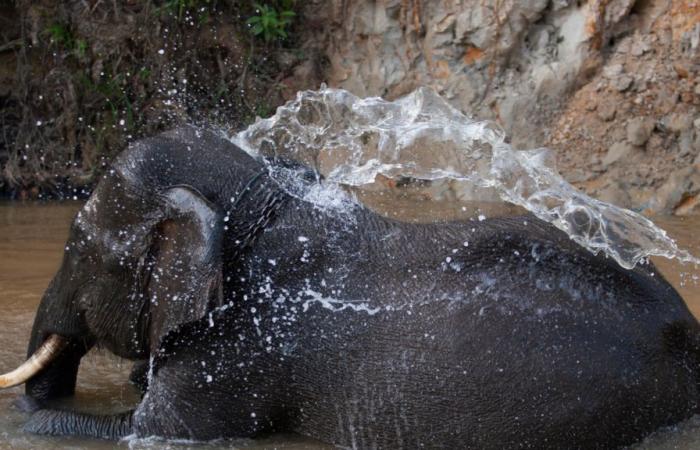They are hunted for their ivory tusks, through poaching or through retaliation: Sumatran elephants are in critical danger of extinction. Cases of pachyderm poisoning have been recorded in recent years.
A little elephant who has not yet been baptized
On Tuesday, November 5, Genman Suhefti Hasibuan, head of the local protection agency, announced that a Sumatran elephant calf was born on Monday, November 4, in the tourist site of Buluh Cina (western Indonesia). This is excellent news: in fact, this subspecies is currently in critical danger of extinction.
“The female baby elephant weighs 104 kilos. [Il]is healthy, lively and actively seeking its mother’s milk”explained Genman Suhefti Hasibuan, as relayed by Le Monde. She is the daughter of Ngatini and Robin, the two happy parents aged 24 and 25 respectively. The little elderly elephant does not yet have a first name.
Less than 3,000 specimens recorded in the world
To date, according to a WWF press release, there are only 2,400 to 2,800 specimens left in the world. Today greatly threatened due to poaching and deforestation of their habitat, they risk disappearing if new initiatives to protect their environment are not put in place.
In Way Kambas National Park (southwest Indonesia), two other Sumatran elephants were also born at the end of 2023. These births were welcomed by the Indonesian authorities. Locally, the Southeast Asian country is largely engaged in combating wildlife crime.
70% of the natural habitat of Sumatran elephants has been destroyed
According to a press release from the environmental NGO WWF, in Sumatra, “nearly 70% of the natural habitat of wild elephants has been destroyed in 25 years and half of the species wiped out”. As a result of the increase in human populations, the natural habitat of elephants has been considerably reduced and the animals are increasingly competing with humans every day for space and food.
On the Asian continent, agricultural expansion is leading elephants to move closer to homes. When they emerge from the forests, they cause a lot of damage, ranging from the destruction of human fields to that of livestock, food… to prevent these events, these animals can be killed in retaliation, according to the NGO.






